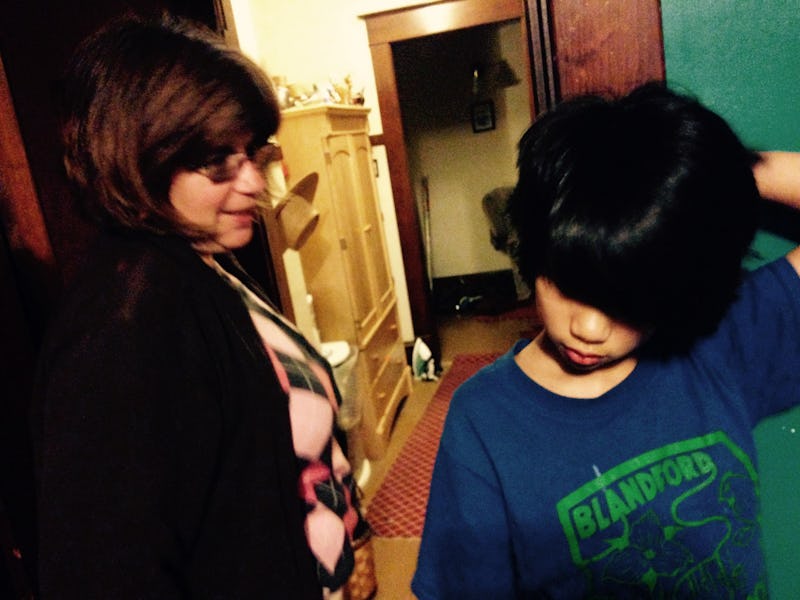Do Hypercritical Parents Cause Persistent ADHD?
When "growing out" of an ADHD diagnosis proves difficult, overly critical parents may be held responsible.

Blaming parents for mental health issues almost feels like a cop-out, but a new study on ADHD-persistent kids in the Journal of Abnormal Psychology suggests that pointing the finger at mom and dad might sometimes be justified.
While many children diagnosed with ADHD tend to chill out after a couple of years, 50 to 70 percent tend to retain the characteristic fidgeting and lack of focus well into adolescence — hence the term “ADHD persistent” — a pattern that has long trumped psychologists. The new study, conducted by a team at Florida International University, suggests that the problem has less to do with the kids themselves and more to do with their relationship with their parents.
The study found that kids with especially judgmental parents tended not to “grow out” of ADHD symptoms the way many of their peers did. Over three years, the researchers tracked 388 children with ADHD and their parents, annually conducting five-minute interviews with the parents about their relationship with their kids; these meetings would be recorded, and experts were called into assess the recordings for telltale signs.
Specifically, the experts were keeping an ear out for two parental bad habits: The inclination to criticize and the tendency to be too emotionally involved. Were parents more likely to criticize their kids and not their behavior? Were they way too overprotective? Positive scores for both these criteria together — all-too-familiar teenage complaints — were associated with the continuation of ADHD symptoms in kids who had been previously diagnosed.
The key thing to keep in mind, the authors are careful to point out, is that their data suggest an association between harsh parents and persistent ADHD, but they don’t imply a cause-and-effect relationship. Could parents help their kids grow out of their diagnoses by learning to stay chill? Possibly. But maybe making initial tiger-parent efforts to curb ADHD could make parents less harsh in the long run. At this stage, it’s hard to know for sure.
One of the world’s leading experts on ADHD, Ned Hallowell, Ph.D., has suggested that providing kids with the support they need to manage their condition is the most important thing parents can do. As Hallowell argues in The Washington Post, punishing an ADHD-diagnosed kid is one of the worst things a parent can do:
“Too often, teachers and parents (and bosses) jump to what I call “the moral diagnosis,” and ascribe the underachievement to lack of effort or laziness, which leads to lectures, punishments, and a gradual infection of the spirit with the viruses of shame and diminished sense of self. In fact, the correct diagnosis is of a brain difference, not a brain deficit, and certainly not a moral failing.”
As researchers in the field continue to debate the causes and effects of this increasingly widespread condition — a 2013 report by the CDC estimated that about 11 percent of school-aged American children have been diagnosed — one thing has become increasingly clear: ADHD isn’t just about treating kids — it’s about fixing parents, too.